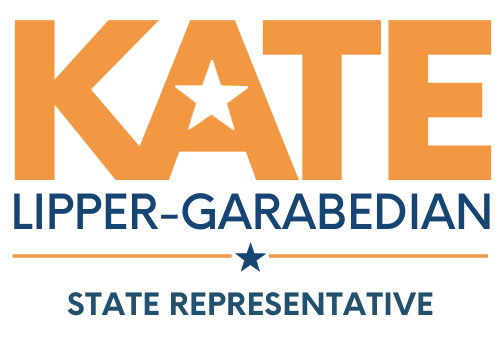State Representative Lipper-Garabedian champions H3922, An Act preventing false confessions
Advocates, experts rally behind H.3922 to help prevent false confession
Boston, MA (October 2, 2023): Last Tuesday, September 26, a coalition of supporters testified before the Joint Committee on the Judiciary on behalf of H.3922, legislation that would prevent false confessions in Massachusetts by ending the use of deceptive interrogation tactics.
The goal of H.3922, which was sponsored by Representative Lipper-Garabedian (D-Melrose), is to protect individuals from being manipulated by officers into making unreliable incriminating statements utilizing coercive tactics. Examples of such tactics include the “false evidence ploy,” where officers tell the accused they have obtained incriminating evidence such as DNA or fingerprints when they do not actually have such evidence, or making false promises of leniency, such as telling the accused that if they confess they will be charged with a lesser charge, when law enforcement knows they don’t have the authority to guarantee that happens. These tactics have long been identified as significantly increasing the risk of false confessions, which have played a role in nearly one-third of all DNA exonerations nationwide. Under H.3922, the Commonwealth would still be able to introduce a suspect’s statements if it can prove the statement was voluntary, reliable, and not made because of police deception. The legislation also requires the police to electronically record custodial interrogations, as recommended by the Supreme Judicial Court in 2004 in Commonwealth v. DiGiambattista.
"I was proud to file and testify in support of H3922, An Act preventing false confessions, a necessary piece of legislation to prevent law enforcement from knowingly or recklessly engaging in deception in order to coerce a confession," said Representative Kate Lipper-Garabedian (D-Melrose). "Significant research demonstrates that deception can cause suspects to waive their rights and make false confessions. This leads to wrongful convictions and the incarceration of innocent persons, the denial of justice to victims, and ongoing risks to public safety. It is time to end a practice that undermines the effectiveness of our criminal justice system."
In Massachusetts and 40 other states, there are no laws preventing the police from lying to someone to compel a confession. Research shows that a person is more likely to give a false confession when police lie during an interrogation, and these unreliable statements lead to wrongful convictions. In Massachusetts, at least six people have been wrongfully convicted after falsely confessing, collectively spending over 100 years in prison for crimes they did not commit.
“When someone falsely confesses to a crime they did not commit, it becomes that much more difficult to correct those wrongful convictions and for that person to be officially exonerated, during which time a person has lost their freedom, family members, health, and so much more. Deception is a key reason why people confess to a crime they never committed, with compounding factors being age, cognitive impairment, mental illness, as well as hunger and sleep deprivation,” said Radha Natarajan, Executive Director of the New England Innocence Project. “With H.3922, Massachusetts has the opportunity to be a leader on this issue and prevent one of the leading causes of wrongful conviction. We urge the members of the Judiciary Committee to swiftly pass this bill out of their committee.”
Victor Rosario is one of the at least six individuals wrongfully convicted in Massachusetts after falsely confessing to a crime they didn’t commit. In 1982, despite no physical evidence, Lowell detectives quickly accused Mr. Rosario of starting a fire that killed eight people, including five children. Police interrogated Mr. Rosario all night, despite the fact that he could not speak or read English and that he was clearly in the midst of a mental breakdown due to the trauma of the fire. The police used an untrained 14-year-old as a translator, ignored Mr. Rosario’s repeated denials, falsely claimed his friends had already implicated him, and even threatened that he would be executed if he didn’t confess. Promised that he would be able to leave if he signed some papers, Mr. Rosario did ultimately confess, and the confession became the central piece of evidence in his trial, leading to a life sentence. He spent 32 years behind bars for a crime he didn’t commit before his release in 2014 and finally being declared innocent in 2017. In May 2023, Mr. Rosario won a $13 million settlement, one of the largest wrongful conviction awards in the history of the Commonwealth.
With H.3922, Massachusetts can once again lead the nation by limiting the use of these dangerous tactics against both children and adults. Nine states – California, Colorado, Connecticut, Delaware, Illinois, Indiana, Nevada, Oregon, and Utah – have already passed legislation to prevent deception in juvenile interrogations. However, according to the National Registry of Exonerations, which tracks known wrongful convictions across the country, two-thirds of all known false confessions nationwide were given by adults over the age of eighteen.
“Interrogation experts confirm that more modern, effective interview techniques produce reliable statements while dramatically reducing the risk of false confession. H.3922 is common sense legislation that protects the innocent, improves public safety, and helps increase transparency and trust between law enforcement and the communities they serve. Wrongful convictions can be prevented, and Massachusetts has an opportunity to stop these tragedies before more innocent people lose their liberty,” said Laurie Roberts, a state policy advocate with the Innocence Project.
H.3922 is currently awaiting a vote from the Joint Committee on the Judiciary.
###
